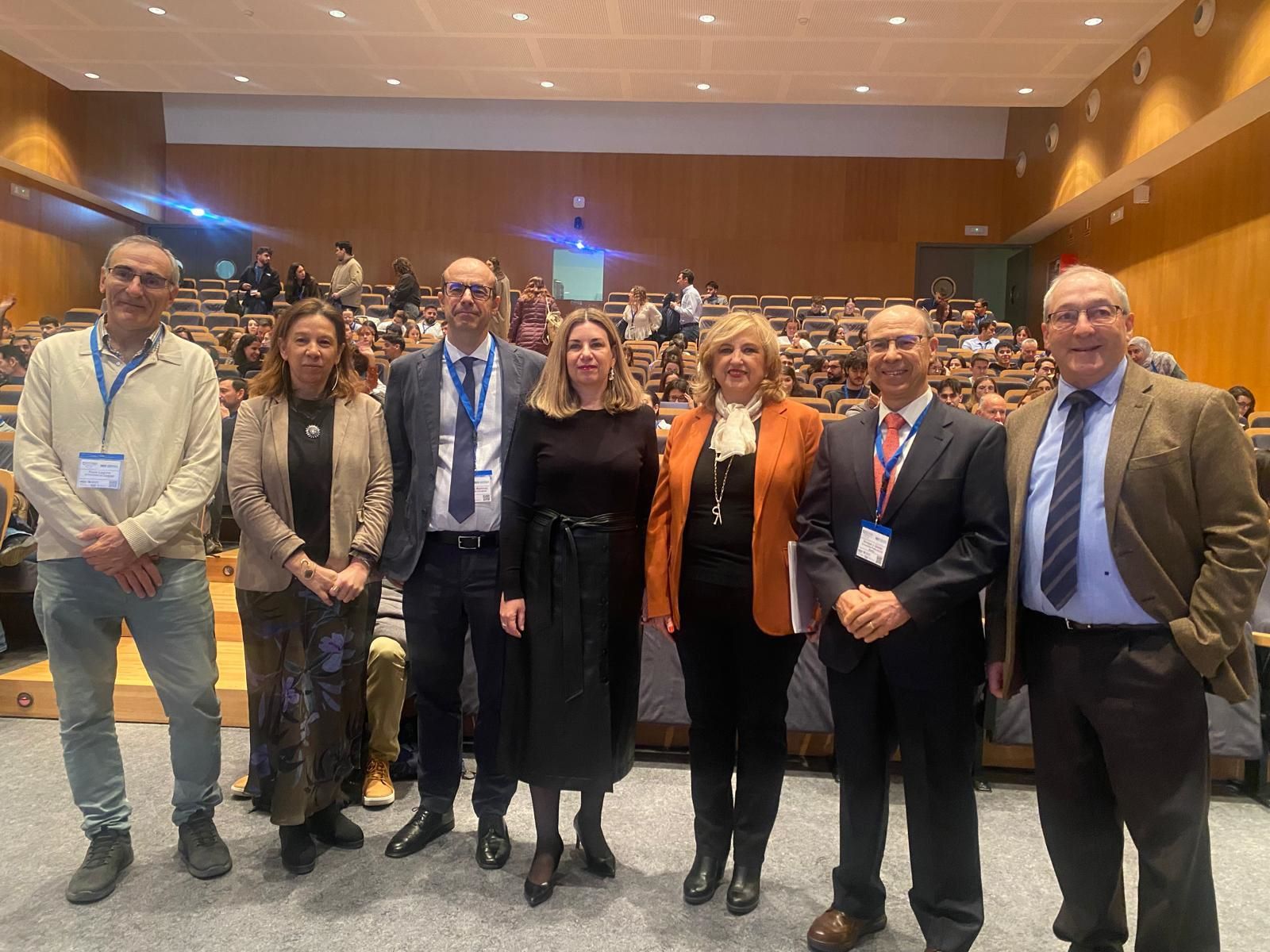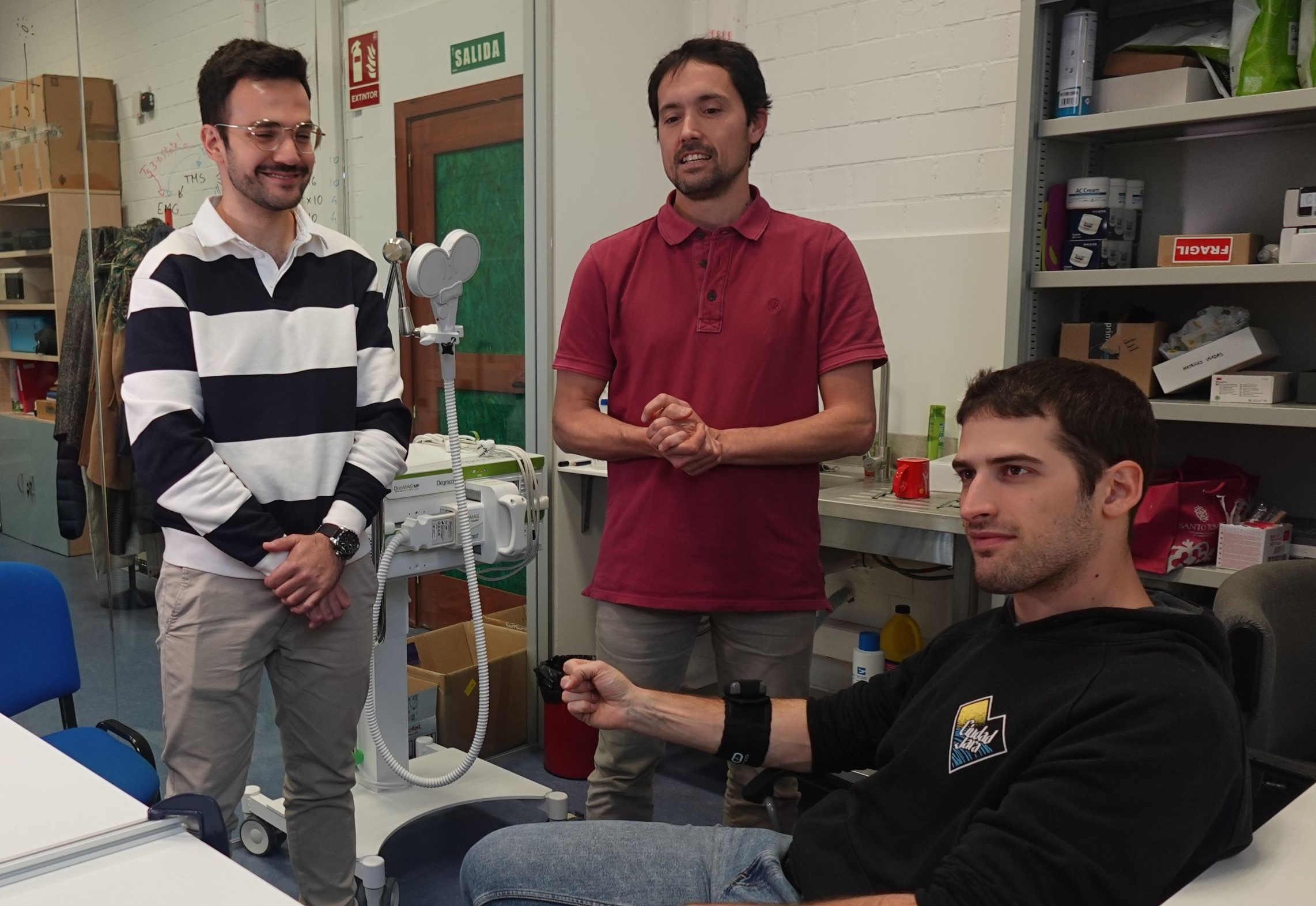
The medicine of the future cannot be understood without engineering and technological advances. Sensors that monitor the heart in real time, digital twins that predict the progression of a disease, and robots that assist in surgery are just a few examples of how technology is transforming healthcare. Under the slogan, ‘Innovating in technology for health and quality of life’, more than 320 researchers and professionals from the sector are gathering in Zaragoza for the Annual Congress of the Spanish Society of Biomedical Engineering (CASEIB 2025), organised by the SEIB and the Aragon Engineering Research Institute (I3A) of the University of Zaragoza.
Starting today, Wednesday, and for three days, the School of Engineering and Architecture (EINA) will become a meeting point for science, technology and health, with the presentation of 270 research projects distributed across 27 subject areas ranging from medical imaging to neuroengineering, including 3D printing of medical devices and artificial intelligence applied to diagnosis. There will also be discussions on the design and regulation of medical devices, electrophysiology, rehabilitation engineering and assistive technology, tissue engineering, artificial organs, modelling and digital twins, biomedical signal processing, medical robotics, telemedicine, e-Health and connected health, among others.
The Betancourt building on the Río Ebro Campus is hosting CASEIB 2025, which was inaugurated this morning with the attendance of the rector of the University of Zaragoza, Rosa Bolea, and the Minister of Employment, Science and Universities, Claudia Pérez Forniés, together with the president of the conference's Organising Committee, Juan Pablo Martínez, I3A Unizar researcher, the president of the Spanish Society of Biomedical Engineering, Enrique Gómez, and the director of I3A, Jesús Arauzo.
The Congress of the Spanish Society of Biomedical Engineering, which has been awarded the Fenin Ethical Seal and the University of Zaragoza's sustainable event label, is coming to Zaragoza thanks to the BSICoS (Biomedical Signal Interpretation and Computational Simulation) research group at I3A Unizar. This forum aims to highlight how technological innovation not only drives scientific progress, but also translates into a direct improvement in people's quality of life and well-being. It showcases the role of engineering in the diagnosis, prognosis and treatment of diseases, in personalised medicine and in more efficient monitoring of chronic diseases.
Featured presentations
The inaugural lecture “Digital twins for in silico trials to assess drug safety and efficacy” has been in charge of Blanca Rodríguez, Professor of Computational Medicine, Head of Computational Biology and Health Informatics in the Department of Computer Science at the University of Oxford.
At the closing conference, Professor Darío Farina, Professor and Chair of Neurorehabilitation Engineering in the Department of Bioengineering at Imperial College London, will explain how recording the activity of motor neurons, which are neurons that transform information from the neuromuscular system into signals for the muscles, allows research into movement control without the need for implants, and will discuss the applications of these technologies in the development of new care and rehabilitation solutions.
Special sessions
CASEIB 2025 will also host sessions dedicated to:
- Biomaterials and Advanced Therapies: Innovation for the Medicine of the Future https://caseib.es/2025/sesion-especial-biomateriales/
- Nanomedicine: Nanotechnology at the Service of Health https://caseib.es/2025/sesion-especial-nanomedicina/
- Neurotechnologies https://caseib.es/2025/sesion-especial-neurotecnologias/
At the closing ceremony, awards will be presented to undergraduate, master's and doctoral students, as well as the SEIB awards for the best scientific article and the best doctoral thesis. In addition, an award will be presented to the Federation of Healthcare Technology Companies (FENIN). The ceremony will be attended by the director of the School of Engineering and Architecture, José Antonio Yagüe, and the scientific director of the Aragón Health Research Institute, Ángel Lanas, together with the president of the SEIB, Enrique J. Gómez Aguilera, and the president of the conference organising committee, Juan Pablo Martínez.
The celebration of CASEIB 2025 in the Aragonese capital coincides with the start of the second year of the new Bachelor's Degree in Biomedical Engineering at the University of Zaragoza, which joins the Master's Degree that has been taught since the 2007/2008 academic year and the Doctoral Programme, which was a pioneer in Spain in this discipline.
Biomedical engineering: a rapidly expanding sector
Biomedical engineering is a rapidly expanding interdisciplinary field that applies the principles of physics, mathematics and engineering to the study, analysis and resolution of problems in biology and medicine. The potential of the knowledge that underpins biomedical engineering opens up a wide range of professional profiles, including basic and applied research, as well as activities related to healthcare products and services.
The biomedical sector is experiencing rapid growth worldwide. According to the U.S. Bureau of Labour Statistics, employment of biomedical engineering professionals will grow by 7% between 2023 and 2033, above the average for other occupations. In Europe, the medical technology market has grown by an average of around 5.4% per year over the last ten years, recording sales of around €160 billion in 2023, according to the MedTech report, and represents 26% of the global market, with more than 37,000 medical technology companies in Europe (90% SMEs).
In Spain, FENIN, which brings together more than 500 companies in the sector, highlights the key role of biomedical engineers in the development and innovation of the healthcare technology sector and actively participates in promoting training and research in biomedical engineering. Global demand for health technologies is expected to continue to grow in the coming years, driven by an ageing population, the chronicity of diseases and growing interest in preventive and personalised medicine, while contributing to the control of health expenditure and equity in access to health services.
In Aragon, with its wide geographical dispersion and rural depopulation, biomedical engineering is establishing itself as a strategic discipline, recognised in the Aragonese Strategy for Smart Specialisation.
Further information about the conference and schedule: https://caseib.es/2025/



